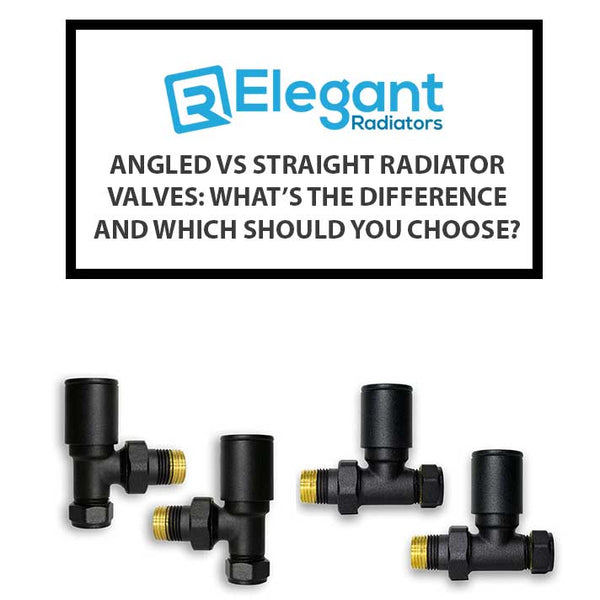Electric Radiators vs. Central Heating: A 2025 UK Cost Breakdown
In 2025, with energy prices remaining a primary concern for UK households, choosing a heating system is one of the most significant financial decisions you can make for your home. The long standing debate between traditional 'wet' central heating (powered by gas) and modern electric radiators has never been more relevant. While one offers cheaper fuel per unit, the other provides unparalleled control and efficiency. But which one is truly cheaper overall?

To answer this, you need to look beyond just the monthly bill and consider the three core pillars of cost: Installation, Running Costs, and Maintenance. This definitive guide from Company Blue will break down the real-world costs of both systems for a typical UK home in 2025, giving you the clear, unbiased information you need to make the best financial decision for your circumstances.
Part 1: Upfront Costs – The Price of Installation
This is where the difference between the two systems is most dramatic. We'll compare the estimated costs for installing a full system in a typical 3-bedroom house.
Gas Central Heating:
Installing a new wet central heating system is a major construction project. It requires a Gas Safe registered engineer and involves extensive work.
- New Combi Boiler: £1,200 - £2,500
- Radiators (8-10 units): £800 - £1,500
- Copper Pipework & Fittings: £700 - £1,200
- Labour (2-4 days for 2 engineers): £1,500 - £3,000
- Additional Costs (Thermostat, System Flush): £300 - £500
Estimated Total Installation Cost: £4,500 - £8,700+
Modern Electric Radiators:
Installation is significantly simpler, cheaper, and less disruptive. It requires a qualified electrician but no pipework.
- Lot 20 Compliant Electric Radiators (8 units): £1,500 - £3,000
- Labour (1 day for 1 electrician): £300 - £500
- Minor Materials (Wiring, Fused Spurs): £100 - £200
Estimated Total Installation Cost: £1,900 - £3,700
The Verdict: When it comes to installation, electric radiators are the undisputed winner, costing less than half the price of a new central heating system and involving significantly less disruption to your home.
Part 2: Running Costs – The Price of Warmth in 2025
This is the most critical calculation. For this comparison, we'll use projected average 2025 UK energy prices:
- Gas: ~7p per kilowatt-hour (kWh)
- Electricity: ~25p per kilowatt-hour (kWh)
Let's assume a typical 3-bedroom house needs 12,000 kWh of heating over a year.
Gas Central Heating Running Cost:
A modern boiler is about 90% efficient, so to get 12,000 kWh of heat, you need to buy around 13,333 kWh of gas.
Calculation: 13,333 kWh * £0.07/kWh = £933 per year.
Electric Radiators Running Cost (for a whole house):
Electric radiators are 100% efficient at the point of use, so you only need to buy 12,000 kWh of electricity.
Calculation: 12,000 kWh * £0.25/kWh = £3,000 per year.
For whole-house heating, the lower unit price of gas makes central heating significantly cheaper to run. However, this calculation doesn't tell the whole story. The real strength of electric heating is zonal efficiency.
Scenario: Heating a Home Office (4 hours per day)
- Central Heating: You fire up a 24kW boiler to heat just one room with a 1.5kW radiator. The system losses and heating the whole circuit means this is highly inefficient. Estimated cost is high, easily ~£1.00 - £1.50 for the session.
-
Electric Radiator: You only turn on the 1.5kW electric radiator in that room. It draws exactly 1.5kW.
Calculation: 1.5kW * 4 hours * £0.25/kWh = £1.50.
However, thanks to its precise thermostat, it will only be drawing power for a fraction of that time to maintain the temperature. The realistic cost is closer to £0.70 - £0.90 for the session.
The Verdict: For heating an entire property, gas central heating is cheaper to run. For heating individual rooms or for households with irregular schedules, the superior control of electric radiators makes them highly competitive and often more sensible.
Part 3: Long-Term Costs – Maintenance & Lifespan
The costs of ownership don't stop after installation and running the system.
Gas Central Heating:
- Annual Boiler Service: A legal requirement for landlords and highly recommended for homeowners. Cost: £80 - £120 per year.
- Repairs: Potential for multiple points of failure, including pumps, valves, and the boiler itself. A new boiler pump can cost £200-£300. A major boiler repair can exceed £500.
- System Maintenance: Requires bleeding, balancing, and chemical inhibitors to prevent sludge. A professional powerflush can cost £400+.
- Lifespan: A typical boiler will last 10-15 years before needing a costly replacement.
Electric Radiators:
- Annual Service: None required. Cost: £0 per year.
- Repairs: With no moving parts, they are exceptionally reliable. The only potential point of failure is the electronic thermostat, which is simple to replace.
- System Maintenance: None required. No pipes to leak, no sludge to form, nothing to bleed.
- Lifespan: Can last for 20 years or more with no degradation in performance.
The Verdict: For long-term peace of mind and near-zero ongoing costs, electric heating is the clear winner.
Buy electric towel rail or central heating towel rail.
How Much Does a New Radiator Cost? Your Complete UK Pricing Guide
FAQ: Your 2025 Heating Cost Questions
Here are our answers to common questions about the cost of heating your home.
Which system is best for a new build or extension?
For an extension, loft conversion, or garden office, electric heating is almost always the most cost-effective solution. The cost and disruption of extending your existing central heating pipework are huge, whereas installing a single, independent electric radiator is quick, cheap, and simple.
What about heat pumps? How do they fit in?
Air source heat pumps are a very efficient alternative. They use electricity to extract heat from the outside air, making them 300-400% efficient. However, the installation costs are very high (often £10,000+), and they work best with larger radiators and very well-insulated homes. They are a great long-term solution but a much bigger initial investment.
Does solar panel ownership make electric heating cheaper?
Yes, significantly. If you have solar panels, you can use your own free, self-generated electricity to power your electric radiators during the day. This makes electric heating an incredibly attractive and low-cost option, especially for rooms you use during daylight hours, like a home office.
Is the price gap between gas and electricity likely to change?
While it's impossible to predict perfectly, many analysts expect the price gap to narrow over the coming years as the UK transitions towards greener energy and phases out gas. As the electricity grid becomes powered by more renewables, the rationale for electric heating becomes even stronger.
So what is the final verdict for a typical home?
For a larger, well-insulated home where you heat most rooms at once, gas central heating still offers the lowest running bills. For smaller homes, apartments, or households where you only want to heat the rooms you're in, the low installation and maintenance costs combined with the superb zonal control of modern electric radiators make them an extremely compelling and often smarter financial choice.







